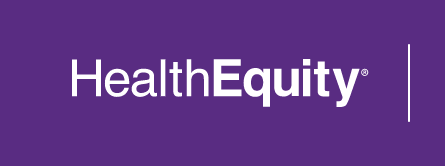One aspect of health savings accounts (HSAs) that may be less understood is the ability to invest HSA funds, the gains of which are tax-free1. Some retirement advisors are even recommending maxing out HSAs before 401(k)s because of the ability to use funds tax-free1 for qualified medical expenses even into retirement. Savvy HSA users are taking advantage of this little-known fact to plan for continually rising healthcare expenses during their golden years.
Most account holders don't invest their HSA funds
Even though HSAs have been called "..the most tax-preferred account available and using one to save for retirement medical expenses is a better strategy than using retirement accounts," data shows that only a small percentage of total HSA dollars (19%) are actually invested. This suggests the vast majority of people may be missing out on potential compound growth.
Getting started
Investing your HSA dollars may require a minimum balance which varies by administrator. Once you meet the minimum balance requirement, you can start exploring the investment options available, which can vary from stocks, bonds, and mutual funds.
Investment preferences
In the investment world, if you were to ask a financial advisor what the best mutual fund is, most would reply with a series of questions. Those questions help to determine suitability. Instead of asking what the best mutual fund is, the question becomes what is the most suitable investment for your individual situation, based on your time horizon, risk tolerance and investment experience and objectives? When it comes to investments, "best" is a misnomer because it is different for each individual.
What is right for me?
In reviewing the suitability questions, you can conduct a self-assessment to determine which investments in your HSA will meet your individual goals.
- What is my time horizon? (How old are you and how long are you saving/investing for?)
- What is your risk tolerance? (Do you consider yourself more aggressive or do you drink a bottle of antacid every time the market takes a tumble?)
- What is your experience with investments? (Are you brand new to investing or are you a level 4 options trader?)
- What is your overall objective?
Once you have gone through the above questions, you can begin to evaluate the investment lineup offered by your HSA administrator. These investments can range from individual stocks to mutual funds. If you don't feel comfortable making those decisions, you can always consult with a financial advisor.
Evaluating the options
Now that you know what your HSA investment objectives are and what type of investments you want to use to achieve those objectives, you can start evaluating what successful investments look like to you. Most people want to have a return on their investment, it's just a matter of how quickly they want to achieve that result. Fees matter, because they eat into your hard-earned returns, so that is a consideration. What does "work for me" mean? It could mean strong growth potential, low fees, fits with your individual suitability requirement (i.e. not too aggressive for your time horizon), etc.
Conclusion
HSAs are uniquely positioned as a relatively unknown financial vehicle with tax advantaged savings, and your HSA can allow you to compound your growth with investing. Savvy HSA-users are taking advantage of this little-known fact to plan for healthcare costs during their golden years.
1. HSAs are never taxed at a federal income tax level when used appropriately for qualified medical expenses. Also, most states recognize HSA funds as tax-free with very few exceptions. Please consult a tax advisor regarding your state's specific rules.
Investments are subject to risk, including the possible loss of the principal invested and may not be eligible for federal depository insurance by the FDIC or NCUA or guaranteed by HealthEquity. Before making any investments, review the fund's prospectus.
HealthEquity does not provide legal, tax, financial or medical advice.
Nothing in this communication is intended as legal, tax, financial, or medical advice. Always consult a professional when making life-changing decisions.


